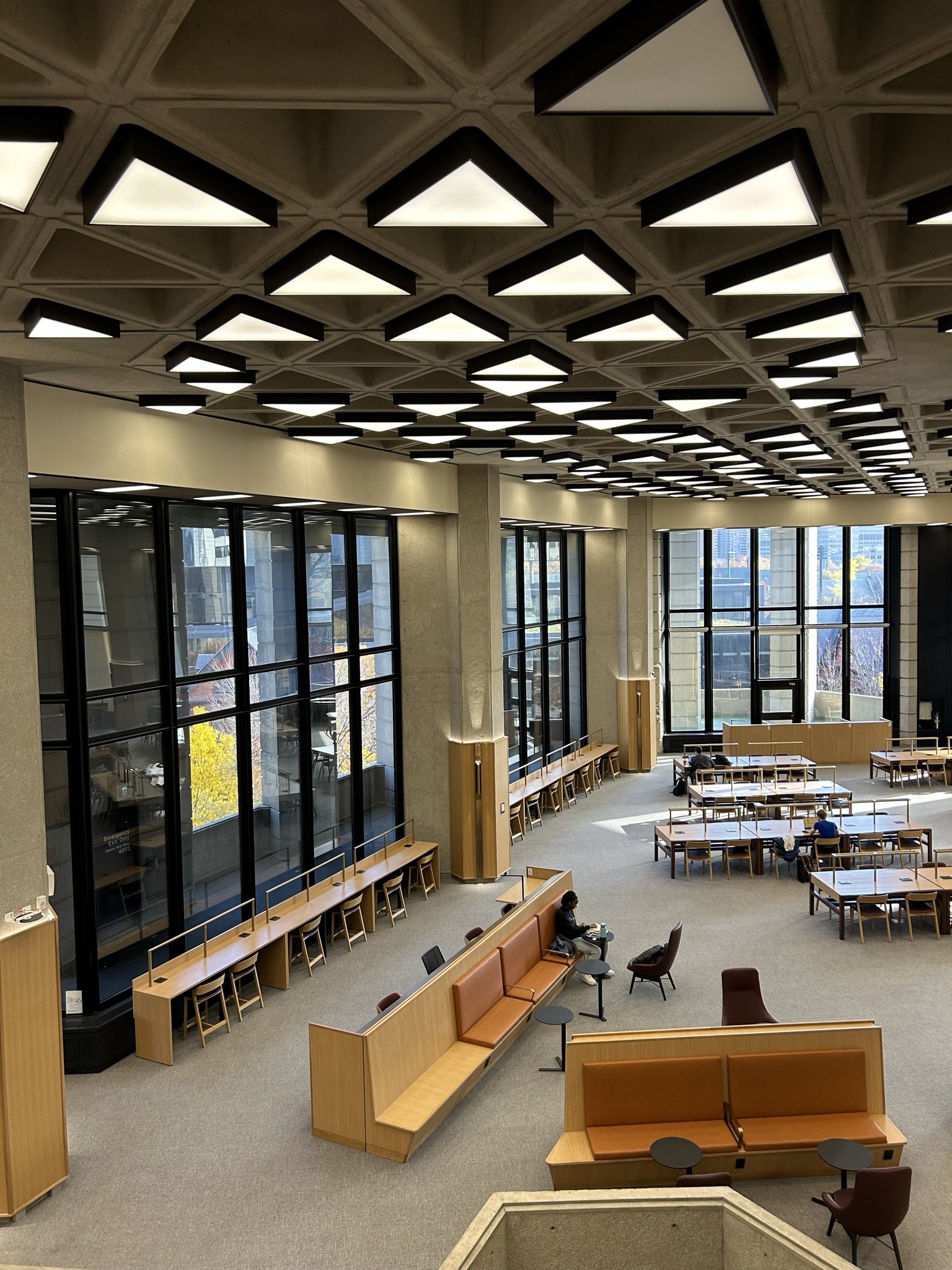Resources
Below is a list of resources that I have found helpful on two broad topics:
1) Jobs, grad school, funding, and more: I often find myself sending these resources to students who are interested in graduate school and/or careers in conservation broadly.
2) Plastic pollution-related resources (coming soon!): These are a collection of resources I have come across or helped compile related to plastic pollution in some manner. If you end up using these resources in a scientific article, please be sure to cite the original creator.
I hope that by compiling and sharing these links, I can help these resources reach more people. These are by no means comprehensive and reflect my experiences and biases. Let me know what I am missing or if you spot broken links!
(Last updated February 6, 2025)
Robarts Library, University of Toronto
Jobs, grad school, funding, and more!
-
Marine conservation listservs by OCTO
The Open Communication for The Ocean (OCTO) runs the:
1. Ocean Plastic listserv - contains new articles, news, funding sources, grad school opportunities related to plastic pollution broadly
2. Marine Protected Areas resources
3. Ocean Ecosystem Based Management resources
-
Job boards - Marine conservation
Here is a listserv run by Seven Seas Media of marine conservation jobs sent to your inbox in a weekly email. I have referred students to this listeserv who have actually found their next gig here, which is great!
-
Job boards - Academia
Here are two collaborative Google Docs that are updated by researchers around the world with academic job openings from postdocs to faculty positions (2024-2025):
-
Postdoctoral fellowships in conservation
I highly recommend the Liber Ero Postdoctoral Fellowship (Canadian institutions) and the David H. Smith Conservation Research Fellowship, or the Smith Fellowship, (US institutions) for PhDs who want to pursue independent, conservation oriented research. In each fellowship, fellows design their research in partnership with both academic and practitioner (e.g., NGOs, governments, etc.) mentors. Fellows receive bi-annual training in topics that allow them to grow as consercation leaders (e.g., science communication, conflict resolution) and are awarded a stipend for their salary as well as research and travel funds.
Full disclosure that I am a Liber Ero Fellow :)
-
Funding, Scholarships, Awards
Here are a few resources:
1. A list of funding scholarships and awards compiled by Dr. Jacobs,
2. This listserv run by Seven Seas Media highlights marine conservation related funding resources as well as jobs.
3. If you are looking for PhD funding and are a US citizen, I am often referring students to apply for a National Science Foundation Graduate Research Fellowship Program (NSF GRFP for short). The Canadian equivalent is the Natural Sciences and Engineering Research Council of Canada (NSERC) Canada Graduate Scholarships — Doctoral (CGS D) program. Both of these scholarships are incredibly competitive awards so don’t be discouraged if you don’t get one. Many researchers, including myself, go on to have fulfilling careers and never had these awards.
4. NSF Research Experiences for Undergraduates (REUs) are great short-term research-intensive opportunities. I’ve worked with students through this program and wish I had applied for one as an undergraduate. Again, these are highly competitive and are by no means the only path to a research career.
-
Thinking about grad school?
Here is some advice by Dr. Johnsen that I found helpful when considering doing a PhD. It skews towards Biology, but I find it helpful across fields.
I also find the resources compiled by Dr. Bennett’s lab/the Socio-Ecological Workshop incredibly helpful.
